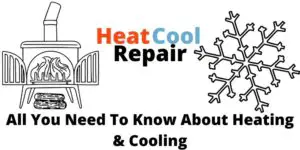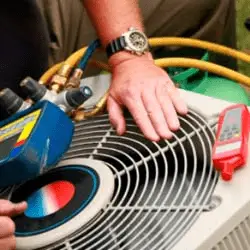*This post may contain affiliate links. As an Amazon Associate we earn from qualifying purchases.
HVAC — heating, ventilation, and air conditioning — is a career that keeps changing and growing, but never stops needing more qualified professionals. It’s well worth planning your course for a career in this enduring field.
Technical school covers the basics
Most HVAC professionals today begin with studies at a technical school, either local or online. There, they cover such basics as:
* principles of heat transfer
* fundamentals of refrigeration and electricity
* residential refrigeration and heating systems
* heat pumps
* advanced air conditioning controls
* air conditioning and heating system design
* air conditioning and heating duct design
< h2 >Apprenticeships are essential< /h2 >
A good apprenticeship is where you do real work under close supervision by a seasoned professional. The people who supervise apprentices know that the only way you are going to learn effectively is to get your own hands on the job. In an apprenticeship, good supervisors will:
* Drill apprentices on safety procedures and safety practices.
* Let apprentices try to apply their classroom learning with questions about how a situation should be handled.
* Let apprentices watch how the supervisor works.
* Let apprentices imitate the supervisor’s skills.
The cycle of thinking-watching-imitating will repeat until the supervisor is confident in the apprentice.
< h2 >Certifications: Essential and optional < /h2 >
The HVAC industry hires many employees without professional certifications. North American Technician Excellence (NATE) certifications by examination are not mandatory, but include:
* Area of service (after at least two years of service technician experience)
* Installation (after at least a year of actual real world experience)
* Senior level technician (after 5 years of work experience)
Certifications from the Environmental Protection Agency (EPA) are required because some chemicals used in refrigerants can harm the ozone layer. Four different levels are available, depending on the equipment a technician services.
< h2 >Never stop training yourself< /h2 >
Technology keeps moving forward and HVAC is no exception. Ten years ago, home systems weren’t programmable. Ten years from now, who knows what resources we’ll offer? Plan to always read every day to keep up with the field.
A career in HVAC keeps people comfortable and productive all year round. I hope you will join us in this valuable profession.

